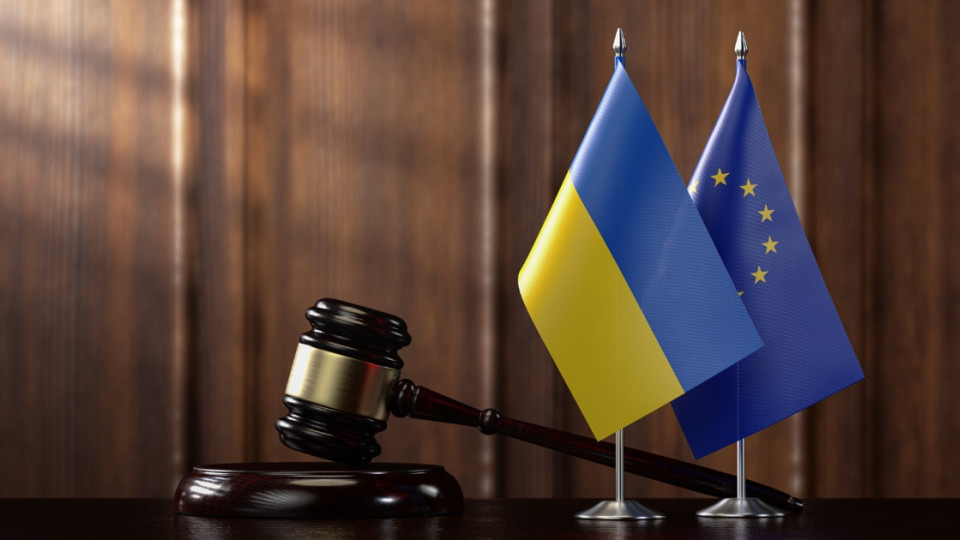I am studying in the third year of the State University of Economics and Technology.I specialize in contractual, economic and corporate law, in particular, I provide consultations and write articles.
The European Court of Human Rights (ECtHR) is an international judicial body that is part of the Council of Europe. Its main task is to ensure compliance with the European Convention for the Protection of Human Rights and Fundamental Freedoms, which is a fundamental legal document in the field of human rights in Europe.
The main powers of the European Court of Human Rights include:
- Any person who believes that their rights under the ECHR have been violated by a member state of the
- Council of Europe can file a complaint with the ECHR after exhausting all national remedies.
- The ECtHR issues judgments on violations of the convention committed by member states. Court decisions are binding.
- The ECtHR can take measures in individual cases to remedy human rights violations.
- The court also has the power to issue general judgments that interpret the convention or establish standards for the interpretation of the convention.
Conditions for applying to the ECHR:
- There is an intention to challenge the actions of a member state of the Council of Europe, which itself violated your right or freedom guaranteed by the European Convention on Human Rights.
- All effective national remedies available to you have been exhausted. This includes exhausting all possible legal remedies in your country before applying to the ECtHR.
- The deadline for applying to the European Court of Human Rights has been met. An appeal to the European Court of Human Rights (ECtHR) can usually be lodged within four months of the date of the final decision of the national court, which is not subject to appeal. However, there is an exception for decisions made before January 31, 2022: an appeal can be filed within six months of the date of such final decision.
- The case has not yet been considered by the European Court on the same grounds, and you are not using another international mechanism to protect your rights in relation to the same situation.
These conditions are necessary for your complaint to be accepted by the European Court of Human Rights for consideration.
Preparation of an application to the European Court of Human Rights:
- Enter your name and personal information, as well as the state that violated your rights.
- Briefly state the circumstances surrounding the violation of your rights.
- State the specific rights and freedoms that have been violated, according to the relevant articles of the
- European Convention on Human Rights and its protocols.
- Clearly articulate claims for compensation, reinstatement, or other remedies.
- Indicate whether you have filed a similar complaint with other international organizations or courts.
- Describe any national legal remedies you have used to protect your rights.
- Provide evidence that supports the facts stated in your statement.
Question
In what language should the application be made and what are the deadlines for its consideration?
Answer
The application must be made in writing in the language of one of the official languages of the States party to the Convention and submitted on the official form of the application form to the ECHR. Applications that are recognized as urgent due to a threat to the life or health of the applicant can be considered as a priority and faster. For example, the minimum term of consideration of such cases can be about one and a half years. At the same time, less urgent applications, for example, regarding the protection of property rights, can wait much longer - up to ten years or more, depending on the urgency and complexity of the case, as well as on the presence of other priority cases in the queue for consideration.
Question
What costs can the applicant bear?
Answer
Applicants do not have to pay the costs of filing or processing a complaint. This includes the costs of legal support and any other court costs related to the consideration of the case. If the complaint is considered inadmissible or unfounded by the ECtHR, the applicant is not obliged to pay the court costs of the opposing party or other costs related to the consideration of the case. This makes the process accessible to everyone, regardless of their financial status.
Therefore, the European Court of Human Rights does everything possible to ensure the accessibility of its procedures for the protection of human rights without financial barriers for applicants.
ECHR application review procedure:
- The applicant submits his complaint to the ECtHR on the official form of the application form. The application must be made in writing and in the language of one of the official languages of the states participating in the Convention.
- The ECHR Secretariat checks whether the application meets all the necessary requirements regarding its form and procedural requirements. If the application does not meet these requirements, it may be rejected as inadmissible.
- After accepting the application for consideration, the ECtHR informs the respondent state about the complaint and requests an answer to the questions raised by the applicant.
- The applicant and the respondent state exchange written materials in which they present their positions and arguments regarding the case.
- If necessary, a main hearing may be held, during which the parties present their arguments orally. However, most cases are decided on the basis of written materials. Legal services are extremely important at this stage.
- The ECtHR decides on issues of violation or non-violation of the rights guaranteed by the European Convention on Human Rights. The decision may include recommendations for compensation, restitution or other measures.
The ECtHR application review process is objective and takes place in accordance with the principles of justice and legal responsibility, which ensures a fair trial for all parties.
Lawyer services when applying to the ECHR:
Here are the types of legal services that are relevant in this case:
Lawyer consultation and legal analysis of the situation: Lawyers online will assess your situation, determine whether your case has grounds for filing a complaint with the ECHR, and explain what rights and obligations you have in this process. A lawyer will create a strategy for your case, including identifying the main arguments that should be presented in the complaint. The lawyer will provide advice at all stages of the process, including the possibility of reaching an amicable settlement or other alternative solutions.
Lawyer help in the preparation and submission of an application: The lawyer will assist in the preparation of a complaint to the ECHR, including the drafting of documents, collection of necessary evidence and filing in accordance with the Court's requirements. A lawyer will check whether all possible remedies have been exhausted at the national level, as the ECtHR usually hears cases only after all domestic remedies have been exhausted. The lawyer will ensure that your complaint meets all the formal and procedural requirements of the ECHR.
Representation by a lawyer at all stages of the process: A lawyer can represent your interests before the Court, including in written submissions and at hearings (although hearings in Court proceedings are usually not mandatory). The lawyer will deal with all correspondence with the Court, including the receipt and transmission of documents related to the case.
Applying to the European Court of Human Rights (ECHR) is a complex and demanding process. The lawyer advice specializing in ECHR cases can significantly increase the chances of a successful outcome and help avoid common mistakes in filing complaints. Contact the CONSULTANT legal marketplace - we are always there to help you solve any legal problem. Leave your number and get legal help right now. Do not waste your time, our lawyers are already waiting for your call!




































